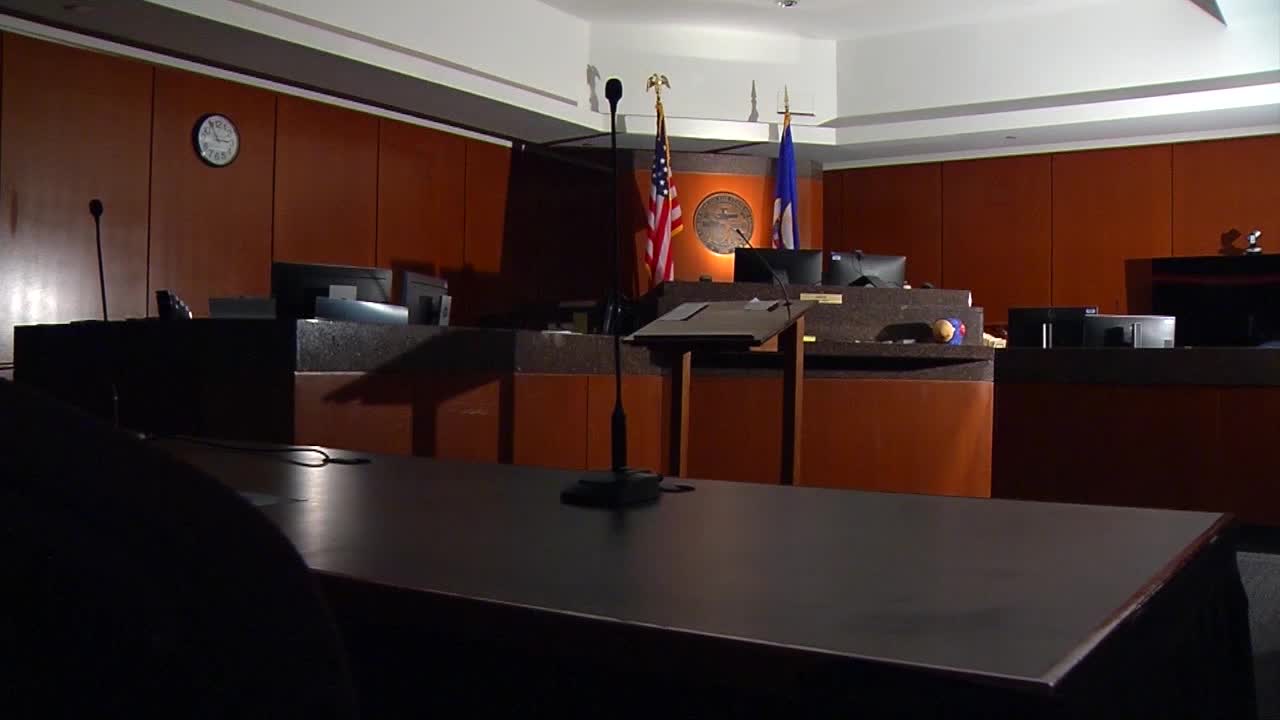Hennepin County first to create program to provide tenants with lawyers in eviction cases
[anvplayer video=”5167620″ station=”998122″]
Hennepin County is the first county in Minnesota to provide lawyers to tenants facing eviction. Adult Representation Services added a housing practice in June 2021 as the state’s eviction off-ramp started.
“This was born out of necessity,” said Terrance Hendricks, principal attorney for Adult Representation Services (ARS). “Hennepin County, as everyone throughout the country, was aware that many of the eviction protections […] would be ending.”
He added they expected to see tenants with high rent balances who were unrepresented by attorneys.
“So this was a call to action,” said Hendricks.
ARS’ housing practice works like a public defender’s office.

“Folks come to court and they are made aware that they have a right to apply for an attorney and if they qualify based on their income status then an attorney will be appointed to represent them,” Hendricks explained. “Our attorneys from ARS are there to represent them at that hearing.”
Potential clients can also reach out to their office before the hearing. There are 12 staff attorneys and each has about 200 to 300 cases per year, according to Hendricks.
“It removes a tremendous barrier for a person being willing to come to court because they know they have someone there to advocate for them,” said Hendricks. “It’s also led to an increase of positive settlement agreements for clients. Our attorneys have been able to reach settlement agreements with clients that not only settle their eviction case but also allow the eviction removed from the record so they don’t have problems in the future.”
Cases have ebbed and flowed through each stage of the off-ramp but then spiked when all pandemic protections for renters ended in June 2022.
ARS’ housing practice took a total 2,493 cases last year, which included about 200 non-eviction related situations. There were 1,510 cases involving Black tenants while 543 involving white tenants. U.S. Census data shows only 14% of Hennepin County residents are Black while 73% are white.
“What we’ve seen overwhelmingly is there’s a disproportionate number of people of color facing eviction,” said Hendricks. “Our work is not only help to just overall provide some balance to the eviction process and the court process but to reduce racial disparities.”
Hennepin County Chief Judge Toddrick Barnette called the program “phenomenal” in an interview with 5 EYEWITNESS NEWS in February.
“If you have a lawyer and they’re telling you, ‘Hey, this is the norm, this is what happens, here’s where you’re at, here’s our options, here’s what we can do’, you leave out of there informed and maybe you don’t win but you know what your rights were,” said Barnette. “If you’re a citizen and you come into a legal system that’s foreign to you […] and you leave here feeling that the process has been fair and you’ve been treated fairly and you’ve been respected, that is huge.”
Hennepin County Housing Court experienced a backlog of cases when filings spiked after the eviction moratorium ended.
5 EYEWITNESS NEWS requested data from the Minnesota Judicial Branch of all evictions filed since June 1. It showed more than 60% of evictions filed in June in Hennepin County weren’t resolved until at least September, with many extending into October. While the data didn’t explain why, a few cases stretched into December, and two still weren’t resolved by the end of January. Typically cases can be either be resolved at the initial hearing or extended due to a continuance or a trial.
The length of time it takes for an initial hearing has improved but amid another wave of cases, a Minnesota District Court system spokesperson told 5 EYEWITNESS NEWS in February it was still taking about five weeks for an initial hearing after an eviction is filed.
Prior to the pandemic, a hearing was typically held within two weeks of a filing.
Judge Barnette acknowledges providing attorneys to all tenants may have slowed the system a little bit.
“But I don’t think that’s bad,” he said. “If any person in our legal system is able to have a lawyer and that’s going to help them, I think that’s better for all of us.”
Housing Court is also holding fewer hearings per week than it did before the pandemic started.
Hendricks told KSTP that ARS is prepared to adjust if the court system increases the number of hearings it holds per week.
“I’m hoping that throughout the state and maybe throughout the country people can see that this model is working and invest money into providing representation,” said Hendricks.